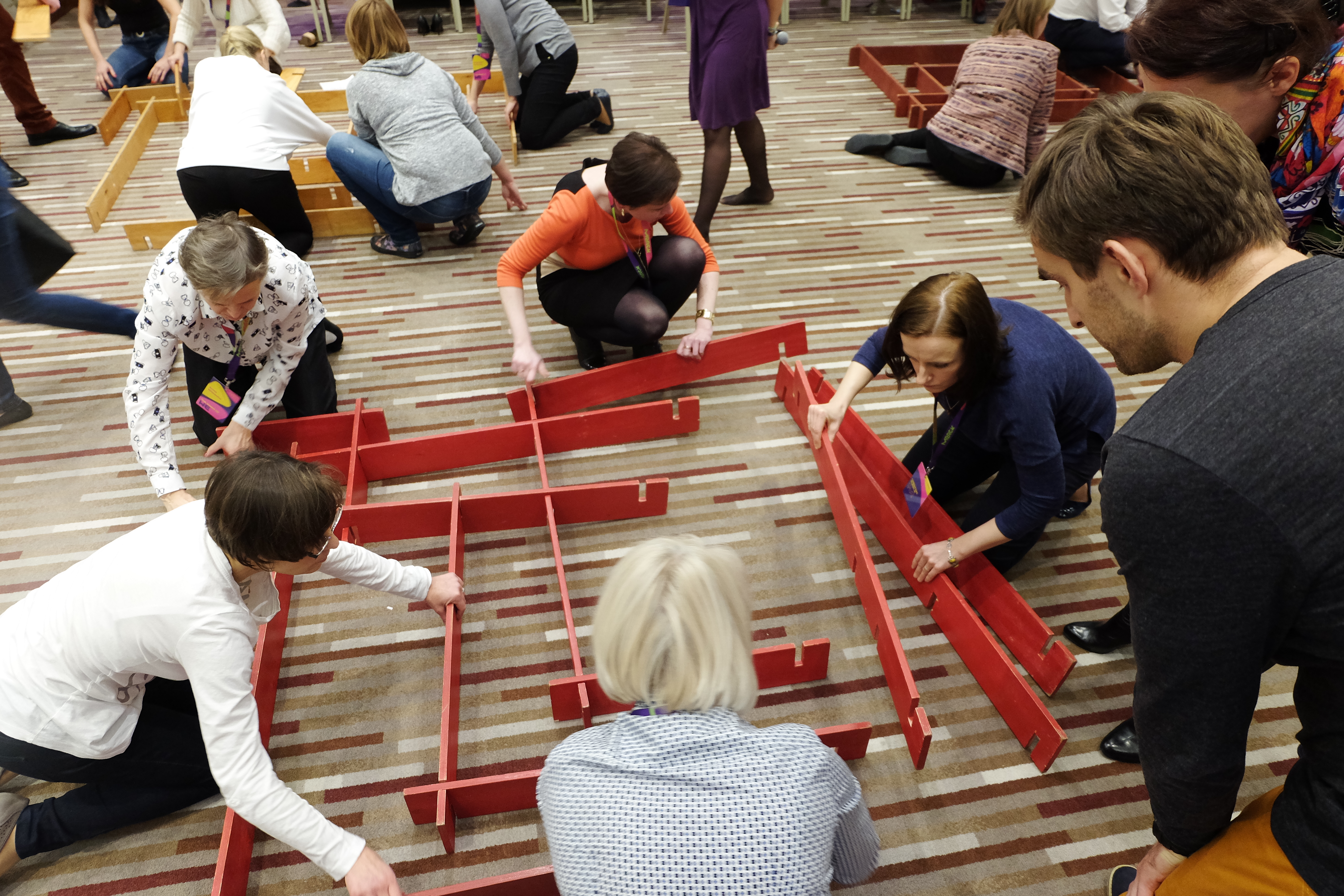CASE STUDY – Shifting shelves
CASE STUDY – Shifting shelves
A task we completed in financial, insurance, HR teams as well as in groups of engineers and IT specialists. The groups included between a dozen and a few hundred people. The game shows the importance of cooperation and exchanging information in order to be successful, at the same time creating make-believe conditions for rivalry.
PROBLEM
The organisation we used to cooperate with works in silos, with hardly any communication with one another. As a result, the effectiveness of the whole organisation drops. There is not enough communication within the whole team. The client wished to focus on developing such competences as Cooperation and Communication.
PROPOSAL
The game called “Shifting Shelves” highlights the silo structure of the organisation, at the same time providing ample opportunities for cooperation, sharing best practices, providing support and communication.
PROGRESS
The business reality as described by the client was manifested in the course of the task. Although the teams were no more than a few metres apart (!), they did not talk to each other, did not share best practices and did not offer any support when searching for solutions. The outcome of the task was far from the initial expectations, but it became a great basis for discussing what can be done to improve the collaboration in the future. What can we do to talk to each other more often? What prevents us from exchanging knowledge and what can we do about it?
CONCLUSIONS
The basic conclusions were related to removing barriers to effective communication and collaboration. The team prepared a new “contract” and each participant undertook to observe its provisions.
RESULT – a more effective, communicative, homogeneous team!
Selected training projects for which we used the “Shifting Shelves” game
Bank: training projects for ca. 2 thousand participants. Trainings were conducted in groups of ca. 20 people.
Multinational IT company: ca. 100 people completed the training; the trainings were conducted in groups of ca. 12 people. The game was conducted in English.
A multinational company operating in such sectors as automation, robotics and energy industry: an integrative training project with developmental elements, designed for ca. 350 participants. The game was conducted in groups of ca. 120 people. The game was conducted in English for some of the groups.
An insurance company: an integrative training project with developmental elements, designed for 200 participants. The game was conducted for a group of 200 people.
A telecommunications company: integrative training projects with developmental elements, designed for ca. 500 people. The game was conducted for groups of 40-120 people.
Bank: the game was conducted for ca. 50 people. The game was conducted in English.
